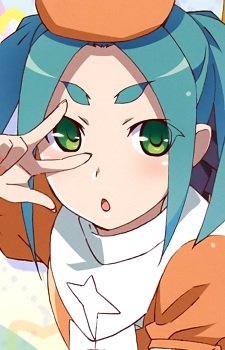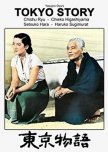"To lose your children is hard, but living with them isn't always easy either. A real dilemma."
Tokyo Story is the third film of the loosely connected "Noriko Trilogy" and probably the most well known and well-regarded by critics. Family and societal themes are explored extensively in this film as was the case in Late Spring (LS) and Early Summer (ES). Tokyo Story (TS), perhaps, leans a bit more on societal changes in response to the post-WWII industrial boom. The younger generation, clearly, is consumed with work and family matters play second fiddle. In LS and ES, there are societal changes, but the social world is slow paced and lazy as if it is in stupor from the recent war tragedies. In TS, the social world is at a frenetic pace; folks are concerned about getting seats on trains; messengers rush about to deliver telegrams; and hot spring hotels - places typically associated with relaxation - are conveyed as rowdy gambling denizens.
Although I may have disapproved of some of the character temperaments in LS and ES to a mild extent, TS introduced the first truly irritating character - Shige who was the eldest daughter of Shukichi and Tomi. Ozu's characters and plots in the Noriko Trilogy tend to be subtle and restrained. Shige's rudeness and obnoxiousness was too plain. And while I don't mind that the character has those traits, their 'in the face' presentation of those traits was distracting. When I read descriptions of TS, reviews, or commentary, I noticed there is an over-generalization that the children in this film did not care about their parents. That's simply too black and white. A close inspection of the characters reveals that the circumstances of the busy children and aging parents are much more complex. In fact, the filmmakers utilize Noriko to elucidate these complexities by asking Noriko to explain to Kyoko, the youngest daughter, the nuances of the family's inter-generational dynamics. Personally, I feel the commentary on family dynamics presented in TS would be have been more effective, and certainly more enjoyable, had Shige been presented as a nuanced character.
Noriko, while still a praiseworthy character in TS, felt the least compelling when compared to Noriko in LS and ES. In TS, her filial piety towards her mother and father in-laws felt slightly forced, even inauthentic. Perhaps the filmmakers and viewers of LS and ES were accustomed to Noriko's temperament across films and would have no problem with this presentation in TS. Yet, viewing Noriko in TS without those prior associations, I stand by the presentation as weaker. Even more so since Noriko of TS was not living near her in-laws nor was she in frequent communication. Playing up her filial piety in contrast to the blood children's selfishness felt inauthentic. It was an unfair presentation of the children to beat us over the head with a point where nuance would have served better.
Despite TS's prestige, I enjoyed this film the least of the three Noriko films. I found myself more conscious of the slow pace of TS compared to LS and ES. It is still a strong film, but it makes me wonder why so many folks seem to place TS at the top of the Trilogy. There are, from a filmcraft perspective, some marked improvements. In TS, the music right off the bat signalled greater complexity and maturity compared to the earlier films. Camerawork was steadier and more varied. There are probably other 'filmmaker' improvements that escape the average viewer's eye. So, I suspect that filmmakers appreciate these advances in craft and rate it highly. But for me, as an average film viewer, the quality of narrative and impact to self was a few steps beyond my viewings of Late Spring and Early Summer.
Lastly, the setting of Late Spring and Early summer was clearly Kamakura; in fact the opening scenes place us at Kita-Kamakura station (a place I've been to). I enjoyed that specificity of location. I could even look up what Kamakura looks like at present if I want. In Tokyo Story, the story took place, loosely, in Tokyo. Well, that's a pretty large area and can mean many places depending on the cultural context. In short, I would have appreciated greater details about the locales of the characters, especially since Shukichi and Tomi were being 'shown around' Tokyo. Yes, we know they go to Akami, which is outside of Tokyo, but within their Tokyo adventure, we get no locations.
Although I may have disapproved of some of the character temperaments in LS and ES to a mild extent, TS introduced the first truly irritating character - Shige who was the eldest daughter of Shukichi and Tomi. Ozu's characters and plots in the Noriko Trilogy tend to be subtle and restrained. Shige's rudeness and obnoxiousness was too plain. And while I don't mind that the character has those traits, their 'in the face' presentation of those traits was distracting. When I read descriptions of TS, reviews, or commentary, I noticed there is an over-generalization that the children in this film did not care about their parents. That's simply too black and white. A close inspection of the characters reveals that the circumstances of the busy children and aging parents are much more complex. In fact, the filmmakers utilize Noriko to elucidate these complexities by asking Noriko to explain to Kyoko, the youngest daughter, the nuances of the family's inter-generational dynamics. Personally, I feel the commentary on family dynamics presented in TS would be have been more effective, and certainly more enjoyable, had Shige been presented as a nuanced character.
Noriko, while still a praiseworthy character in TS, felt the least compelling when compared to Noriko in LS and ES. In TS, her filial piety towards her mother and father in-laws felt slightly forced, even inauthentic. Perhaps the filmmakers and viewers of LS and ES were accustomed to Noriko's temperament across films and would have no problem with this presentation in TS. Yet, viewing Noriko in TS without those prior associations, I stand by the presentation as weaker. Even more so since Noriko of TS was not living near her in-laws nor was she in frequent communication. Playing up her filial piety in contrast to the blood children's selfishness felt inauthentic. It was an unfair presentation of the children to beat us over the head with a point where nuance would have served better.
Despite TS's prestige, I enjoyed this film the least of the three Noriko films. I found myself more conscious of the slow pace of TS compared to LS and ES. It is still a strong film, but it makes me wonder why so many folks seem to place TS at the top of the Trilogy. There are, from a filmcraft perspective, some marked improvements. In TS, the music right off the bat signalled greater complexity and maturity compared to the earlier films. Camerawork was steadier and more varied. There are probably other 'filmmaker' improvements that escape the average viewer's eye. So, I suspect that filmmakers appreciate these advances in craft and rate it highly. But for me, as an average film viewer, the quality of narrative and impact to self was a few steps beyond my viewings of Late Spring and Early Summer.
Lastly, the setting of Late Spring and Early summer was clearly Kamakura; in fact the opening scenes place us at Kita-Kamakura station (a place I've been to). I enjoyed that specificity of location. I could even look up what Kamakura looks like at present if I want. In Tokyo Story, the story took place, loosely, in Tokyo. Well, that's a pretty large area and can mean many places depending on the cultural context. In short, I would have appreciated greater details about the locales of the characters, especially since Shukichi and Tomi were being 'shown around' Tokyo. Yes, we know they go to Akami, which is outside of Tokyo, but within their Tokyo adventure, we get no locations.
Was this review helpful to you?







